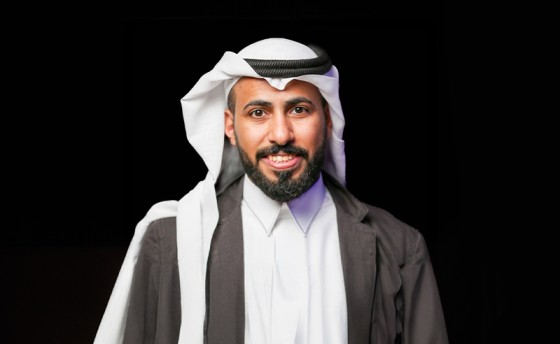How Saudi Startup Labayh Tackles Stigmas Around Mental Health in MENA
Founded in 2018 by Basim Al Beladi, Labayh provides a variety of tools to make mental health accessible to anyone, anywhere.

Saudi-based mental health startup Labayh is on a mission to break the social stigma associated with mental health in the MENA region. Founded in 2018 by Basim Al Beladi, Labayh provides a variety of treatments and tools - including one-on-one therapy sessions, support groups, webinars and workshops - to make mental health accessible to anyone, anywhere. By connecting patients anonymously and discreetly with licensed therapists, Labayh aims to lower the social and cultural barriers that typically bar those in need from seeking treatment.
An engineer turned entrepreneur, Al Beladi first came up with the idea for the healthcare platform after experiencing post-traumatic stress disorder (PTSD) following a motorbike accident in the US in 2016. Although he returned home one month later, he started experiencing stress and trauma doing simple tasks like driving a car, which led him to seek therapy with a doctor in the states.
“I had a good relationship with my doctor and I was in constant contact with him while I was here in Saudi Arabia,” Al Beladi tells StartupScene. “I was getting better and better, and after six months, I was feeling very good. And then the thought came to me, how someone staying in the US can help me by being in contact with me online.”
With previous experience building mobile apps, Al Beladi decided to launch Labayh. Today, the startup has provided a total of 50 million minutes of counseling to people across the region, and aims to expand its platform to have more therapists from across the Middle East to reach 100 million minutes in the next few years.
PANDEMIC GROWTH
While the COVID-19 pandemic may have been challenging for most businesses, particularly in 2020, it was an opportunity for Labayh to grow its user base in the region.
With schools closed and people forced to work remotely, Al Beladi recalls how many experienced feelings of stress and anxiety, particularly with the economic and job uncertainty at the time. “In the early days, no one knew the impact, how hard it was,” he says. “Children were not in school in Saudi Arabia for almost two years. They studied online, and people were working remotely. They didn’t feel the pain immediately, but they experienced it later.”
During the pandemic, the world also started moving online, accelerating digital adoption in the region. People increasingly relied on digital channels to perform regular tasks such as grocery shopping, paying bills and working and studying online. “What was expected to happen in four or five years, was instead happening in one year,” adds Al Beladi.
As a result, the startup carried out 250,000 consultations in 2020, amounting to one million minutes of therapy in total. This continued growth was also sustained after COVID-19 restrictions were relaxed; in 2021 alone, Labayh completed 10 million minutes of therapy.
STIGMA STILL PREVALENT
Despite Labayh’s surge in demand before and after the COVID-19 pandemic, mental health stigma still prevails in the region.
There are concerns about privacy, confidentiality, and the perceived public stigma of seeking mental health treatment. One in three people in Saudi Arabia have suffered from mental health disorders in their lifetime, but only one third have received treatment or therapy, according to the 2019 Saudi National Mental Health Survey.
“When you physically go to a clinic in Saudi Arabia, there is a sort of cultural barrier,” Al Beladi says. “It’s not that easy to go, and you typically don’t have the right to choose the doctor you want. You go to the one that is available. But when you go online, there is variety. You have different doctors from everywhere. You can choose the one that is right for you, and you can schedule it. So, there is convenience there. Also, there is privacy. And privacy matters in mental health.”
To address the stigma, Labayh launched persistent awareness campaigns, created regular content in the form of articles and newsletters, and made therapy and mental health tools accessible to users. So far, they have been successful. While they initially struggled with getting therapists on board, there is now a long wait list to join the platform.
Moreover, with Labayh’s recent acquisition of UAE-based meditation app Nafas earlier in 2023, Al Beladi aims to reach more people, expand its range of services, and ultimately provide holistic mental health services to users across the region.
FUTURE GOALS
Surpassing more than one million users to date, the startup is now looking to expand to new markets in the Middle East.
It aims to do that by leveraging its B2B and B2C arms, bringing mental health to the forefront of both businesses and consumers. It is working alongside companies, startups and government sectors to not only provide people with mental health sessions, but also social and family therapy, as well as nutrition and fitness programs, and workshops.
Since last year, the startup has also been providing self-assessment tools to the most common ailments, like depression and anxiety, to encourage people to seek psychological care and enhance their mental health. “We believe that the challenge is everywhere, not only in Saudi Arabia,” adds Al Beladi. “We are here to help them, especially those suffering in silence.”
Looking ahead, Labayh intends to participate in a Series A fundraising round this year, marking what would be its third round to date, with the goal of hiring new talent, strengthening its marketing strategy, and further enhancing the app. “Our goal is to positively impact people’s lives, this is the most important thing,” says Al Beladi. “And this is what Labayh stands for.”




















